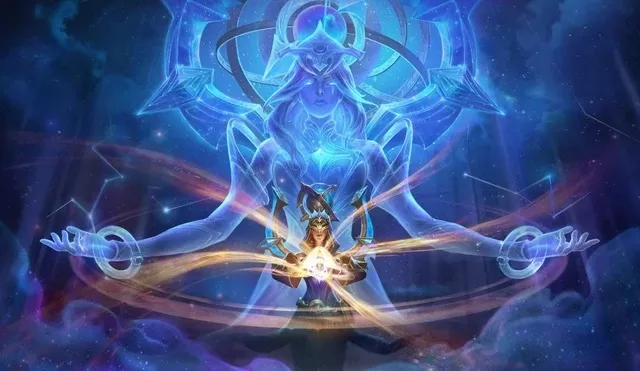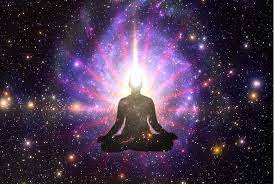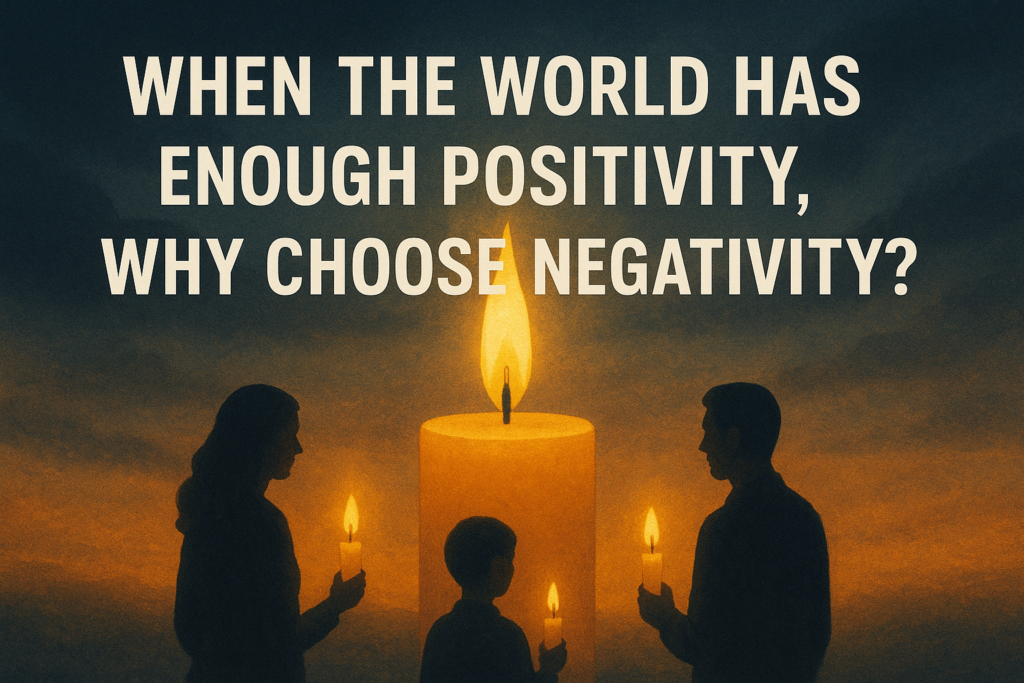That’s karma! is a phrase that has been repeated a gazillion times in our ears. So are the phrases like “Karma is a mystery” or “What goes around comes around!” which happen to be my personal favorites. It is a fallacy to believe that negative thinking brings about bad karma, which in turn brings about a curse on our own lives, even though it is now widely accepted as a reliable belief system that good deeds, positive energy, and kind thoughts breed an easier and happier future.
Karma is not a system of ethical or legal justice. The Sanskrit word for action is karma, and it is the activity that determines the course of our lives. Even though the idea of karma comes from Hinduism, it is most closely linked to Buddhism, which is a branch of Hinduism.

Hinduism and Karma
In Hinduism, most people believe that the soul, or purusha, lives on after death and is reborn into a new body, where it brings the karma it built up in previous lives with it. Buddhism is different. Buddha taught the anatman school of thought, which says that there is neither a soul nor a self. Buddhism, on the other hand, focuses on the five skandhas, which are also called aggregates.
Karma, which derives from the Sanskrit word karman (which means “act”) and the Pali word kamma, is the universal law of causality that, according to Hindu religion and philosophy, determines how an individual will continue to exist in the future. The idea of karma can be seen as the moral part of samsara, which is the cycle of rebirth. Belief in samsara is common throughout the various religious systems practiced in India.
The Philosophy
Indian soteriologies, which can be translated as “theories of salvation,” say that a person’s actions in this life, which are in turn affected by the effects of actions done in previous lives, will have an effect on their future births and the situations they find themselves in. So, people who believe in Indian religions use the theory of karma to help them reach their ultimate goal, which is to be freed (moksha) from the cycle of life and death.
So, the idea of karma is important in Indian moral philosophy for two main reasons: first, it is the most important reason to live a good life, and second, it is the most important reason for the existence of evil. The word “karman,” which means “act,” had no ethical connotations. In the earliest Vedic texts, which were written between 1000 and 700 BCE, the word “karma” just meant rituals and sacrifices.
Yet, when the priestly theology of sacrifice was developed by Brahman priests over the course of the subsequent centuries, ritual activity came to be considered effective in and of itself, apart from the gods. When performed as a ritual, karma worked both independently and in accordance with the cosmic ceremonial law.
The Upanishads are a part of the holy scriptures (Vedas) that talk about ontology, which is the philosophical study of being. They are the first evidence that the term “ontology” began to be used in an ethical context. Ontology refers to the study of being.
In the middle of the first millennium BCE, the Vedic theologian Yajnavalkya expressed a belief that eventually became commonplace but was considered new and esoteric at the time: “A man turns into something good by good action and into something bad by bad action.”
Karma and Morality
Karma is often confused with morality. One should understand that this moral part of karma became more and more important in religious talk, especially in Buddhism and Jainism, which came into being around the middle of the first millennium BCE. This is because “good action” and “bad action” may have included both ritual and moral acts within the Vedic ritual tradition. Both of these religions encouraged living a simple life and didn’t like how the Brahman priests were so focused on rituals.
How exactly does karma play out?
The idea that karma and fate are interchangeable is the one that people have the greatest propensity to get wrong. On the other hand, that is not the case at all. Karma is not just a means of restoring equilibrium by rewarding or punishing an individual, nor is it the result of a decision made by an extraterrestrial being. Just because we have engaged in some questionable behavior does not necessarily indicate that the universe will respond in kind to keep things in check.
Alternately, one can think of karma as the force that directs and controls the activities in the spiritual realm. Karma has an effect on our lives because it holds us responsible for the consequences of any action or reaction we take, in addition to the thoughts we were thinking when we took that action.
It is thought to be guiding energy, which comes from doing things on purpose and thinking about things on purpose. The energy that we are emitting right now, as well as the energy that we will emit in the future, will have an impact on our lives.

What is good karma, and what is bad karma?
Many people have the misconception that the karmic structure can only be either positive or negative; yet, similar to the majority of things in life, there is a significant amount of ambiguity there. Even when an action is carried out with the best of intentions, there are some circumstances in which we may feel as though we have created negative karma for ourselves.
The reason for carrying out an action is what determines the kind of karma that results from that action. With this in mind, let’s take a look at the two distinct forms that karma might take:
Good Karma
One definition of “good karma” is the energy that we attract into our lives as a direct result of the good deeds and intentions we have performed in the past. The outcome of our intentions is determined by the purpose of the activities that we undertake. Having said that, good activities do not go unrewarded; rather, they are rewarded at a point in time in the multiple existences of an individual, and they play a significant influence in defining the individual’s karmic cycle.
Bad Karma
You could say that bad karma is the opposite of good karma because it is shown through bad actions, thoughts, feelings, and so on. This is because having bad intentions often leads to bad behavior, which then leads to bad results. Bad karma can show up in our current life even if it was caused by bad things we did in a previous life. The same is true for good karma.
How do good and bad karma interact with one another?
At any point in time during our lives, karma may present itself to us in either a positive or negative way. To better comprehend the idea of negative karma, let’s take a look at the following scenario: Let’s say that a person cheats on their spouse without feeling any sense of sorrow or remorse, which ultimately leads to the breakup of their marriage.
Later in life, the cheater faces mental health issues like loneliness and depression, as well as a slew of other issues like commitment issues, estranged children, and so on. The person who cheated also faces a host of other problems. Because the person got what they deserved for their bad behavior, this could have been a case of bad karma.
But there are also circumstances in which you will be required to make an unfavorable decision while maintaining positive intentions. For example, if a pea For example, if someone can’t get the right medical care, they might feel like they have to steal insulin for their severely diabetic grandfather. A beneficial consequence creates a sort of karmic integration, despite the fact that stealing is considered a form of behavior that generates negative karma.
How can I alter the course of my karma?
Even though an individual cannot control the Karmic Cycle in its entirety in the grand scheme of things, there are some things that may be done to boost the manifestation of good karma, and these things are independent of the deeds and intentions of a person’s past lives.
Admit it and then forgive yourself.
Being present is one of the most effective strategies to achieve this goal. Forgiveness and acceptance of things that have happened in the past are necessary steps toward being fully present in the here and now. This is the case because traumatic experiences from the past have an uncanny ability to project themselves into the present.
It will be easier for us to recover from emotional trauma and overcome older complaints if we first acknowledge what happened in the past and then let go of them. These issues have been hurting our current lives.
What karma is and is not
We often get stuck translating karma into event-based theories, like doing good deeds and thinking positive thoughts, instead of seeing the larger philosophical framework on which it was built. This causes us to miss the point of karma.
Lord Krishna explains Karma Yoga, which is also called Yoga through Action, in the Bhagavad Gita in a very clear and concise way. The freedom to work alone is a blessing; don’t waste it. If your buddy is constantly telling herself, “I’m doomed,” she is not only discouraging herself but also reinforcing a negative thought pattern that will make it difficult for her to make decisions in the present and the future.
It is important to understand the basic meaning of well-known Eastern ideas like karma so that we don’t keep believing things that aren’t true and hurt our minds and souls. Karma is an example of one such principle. Karma is not a system that gives out rewards or punishments. Instead, it is an exchange of energy that is made, powered, and held by the self.
Hence, the next time you have positive feelings about yourself, speak lovingly to yourself, and recognize times in which you judge yourself, give yourself another chance; this will offer you a karmic boost. Use the mantra “next time, I will do better” whenever you are having a negative self-evaluation or are feeling guilty about something you have done recently or in the past. Karma is not about whether anything is good or bad; rather, it is a process that is always being worked on as we move through life.

Understanding Karma from the Perspective of Sadguru
From the moment you were born until this very second, the kind of family, home, and friends you had, as well as the activities you engaged in and did not engage in, are all factors that are affecting who you are.
Every single idea, feeling, and deed that you have is entirely the result of previous impressions that you have had within you. They determine who you are at this very moment. The manner in which you have taken in information is directly correlated to the way that you think, feel, and comprehend life.
The past impressions of life go much further back than the moment you were born; however, in your perception right now, at least from the moment you were born until today, what kind of parents, family, and education you had, what kind of religious and social background you had, and what kind of cultural realities you faced—all of these impressions have gone in.
The past impressions of life go much further back than the moment you were born. Because of the kind of information that has made its way into someone’s head, that person has developed into a completely new person. This is the meaning of the term “karma.” This data is typically referred to as “karma,” “karmic body,” or “causal body,” which all refer to the same thing: that which creates life.
Several Kind Of Karma
This information can be interpreted in a variety of different ways. Karma can be broken down into four different aspects, but only two of them are important for now. To further grasp the situation, let’s discuss the other two options.
Sanchita Karma
One is Sanchita Karma. This location stores karma that may be traced all the way back to a single-celled animal and even to the inanimate components from which life originated. There is not a single piece of missing information. If you close your eyes and become aware to the point where you can look inside yourself, you will know the nature of the universe. This is not because you are looking at it through your head, but rather because this information is present in the making of the body.
If you close your eyes and become aware to the point where you can look inside yourself, you will know the nature of the universe. There is a repository of data that is being fed back into the process of creation. It is your sanchita karma. But you are not allowed to use your warehouse to conduct retail commerce. In order to engage in retail, you will need a storefront. This “retail shop,” which pertains to the current life, is referred to as prarabdha.
Prarabdha Karma
Because of your prarabdha karma, you will have access to a certain amount of knowledge in this life. The vibrancy of your life determines how much knowledge your life is able to take in, and life makes that decision for itself. The creator put a lot of care into this masterpiece. If it gives you all of the karma that you currently have, then you will perish as a result.
Many people are currently being tortured by their ordinary recollections of the last 30 to 40 years of their lives. They would not be able to make it through life with one hundred times that amount of memory. Thus, you have a certain amount of memory that you can control.
Escape the clutches of Karma
No matter what kind of karma you have, it is a restricted possibility, and the fact that you are restricted in this way is what makes you a restricted person. You have a certain personality based on the impressions you received, whether they were hatred and wrath or love and joy; in general, every human being is a complicated mixture of these things. But, your personality can change depending on the impressions you took in.
When you let this karmic framework grow past a certain point, there is no longer any such thing as freedom. Your actions are always determined by what has happened in the past. If you want to progress along the route of liberation, one of the first things that you need to do is to loosen the grasp and shackle of karma. This is one of the things that you need to do in order to advance on the road to liberation. Otherwise, no movement will happen.
Karma and spirituality
On the spiritual road, it is as if you are saying to the world, “I am in a rush to reach my ultimate goal.” You do not want to consume one hundred lives’ worth of time. During these one hundred lives, you might also earn enough good karma to live for another thousand lives. You want things to move along more quickly.
After a spiritual process starts, if the initiations are done in a certain way, it will open up dimensions that wouldn’t have been possible otherwise. If you had not been spiritual, you would have had a more tranquil life, but it would also have been a life that lacked vitality and was more on the verge of death than life. It’s possible that you breezed through it without having anything basic in you disturbed, and that’s why you passed.

Does this imply that once you start along the path of spiritual development, nothing but bad things will happen to you? That is not how things work at all. It’s just that when life goes at an incredible rate—a pace that’s far faster than the pace of the people around you—you start to worry that something terrible is going to happen to you. You are not going through a terrible ordeal. It’s simply that they’re moving at the same pace as usual, but time seems to be moving far more quickly for you.
Every seeker has to make a choice: does he want to just take his time and enjoy the journey, or does he want to arrive at his objective as quickly as possible?
Many people think that once they start on a spiritual path, they will feel at peace right away and have all of their questions answered. If you choose an easily accessible set of beliefs and train your mind to think in only one way, then everything appears to make perfect sense. Yet if you are truly on the path to spiritual enlightenment, nothing will become obvious to you. Everything will run together in a haze. The farther you get from your destination, the hazier it will become.
Disclaimer: The author’s views are his or her own. The facts and opinions in the article have been taken from various articles and political commentaries available in the online media and Eastside Writers does not take any responsibility or obligation for them.
Note: Contact our Writers at www.eastsidewriters.com for writing Blogs/Articles on any niche. We have experts in various domains from Technology to Finance and from Spirituality to Lifestyle and Entertainment.







Pingback: The Dance of Daivata and Advaita: Exploring Hindu Spirituality's Monism and Dualism - Eastside Writers
Pingback: Transcending Boundaries: A Profound Exploration of Nirvikalpa Samadhi and the Essence of Ultimate Consciousness - Eastside Writers
Pingback: The Symbolism Behind Krishna's Request for Karna's Teeth on the Battlefield - Eastside Writers
Pingback: The Gateway To Super-Consciousness: The Profound Spiritual Significance Of The Medulla Oblongata - Eastside Writers
Pingback: Did Buddhism Really Reject Hinduism? Unraveling Buddha's Perspective and the Rise of a New Spiritual Path - Eastside Writers